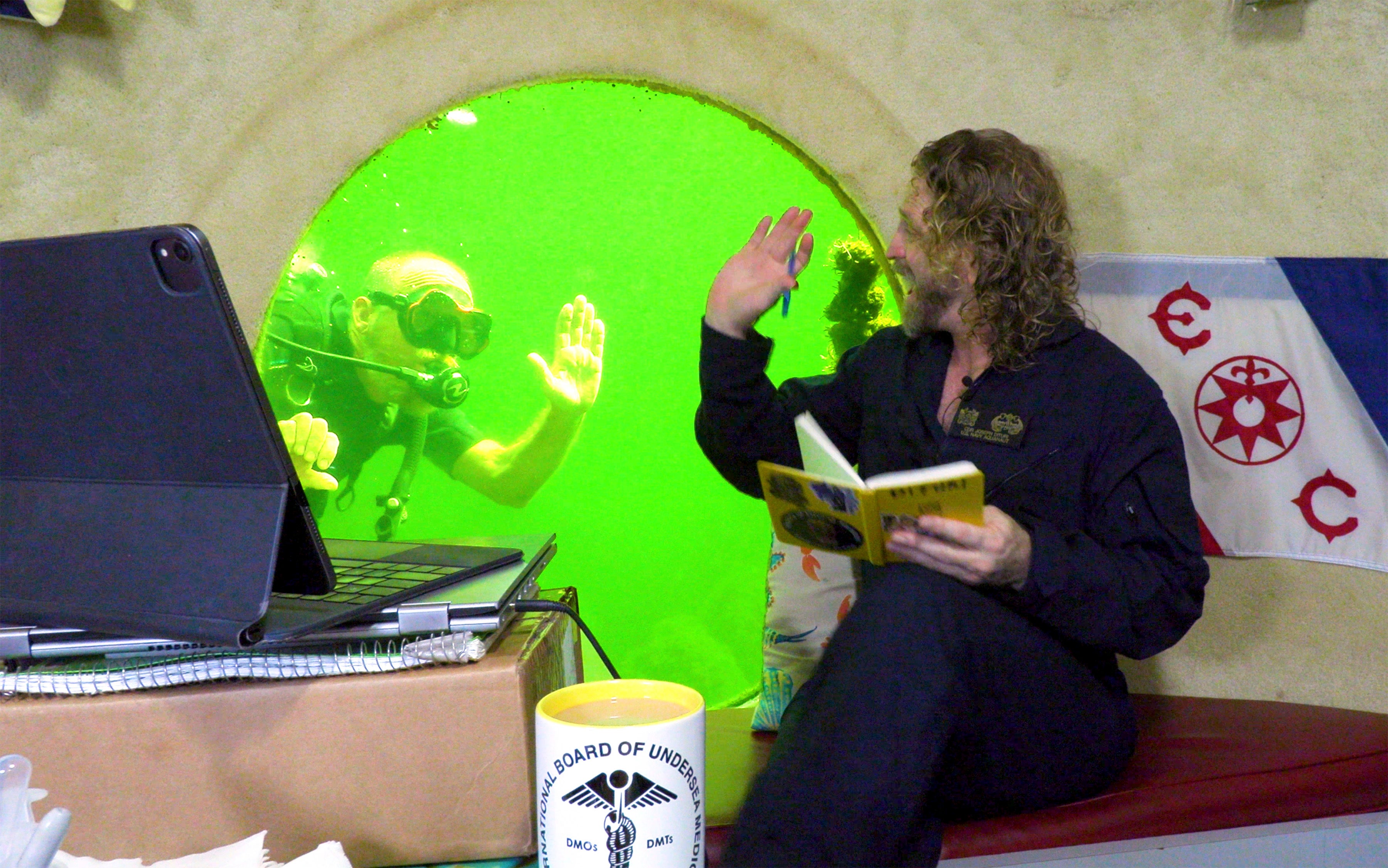Scientist spends 74 days underwater and expects to lose an inch in height
Dr Joseph Dituri has broken a world record in the process, telling The Independent he hopes the pressure exerted on his body will help him live longer
Your support helps us to tell the story
From reproductive rights to climate change to Big Tech, The Independent is on the ground when the story is developing. Whether it's investigating the financials of Elon Musk's pro-Trump PAC or producing our latest documentary, 'The A Word', which shines a light on the American women fighting for reproductive rights, we know how important it is to parse out the facts from the messaging.
At such a critical moment in US history, we need reporters on the ground. Your donation allows us to keep sending journalists to speak to both sides of the story.
The Independent is trusted by Americans across the entire political spectrum. And unlike many other quality news outlets, we choose not to lock Americans out of our reporting and analysis with paywalls. We believe quality journalism should be available to everyone, paid for by those who can afford it.
Your support makes all the difference.A scientist has broken the world record for living underwater after spending 74 days living in a habitat 30 feet (9 metres) below a Florida lagoon.
Former naval officer Dr Joseph Dituri is the first person to live that long that far underwater without depressurisation, with plans to remain in Jules’ Undersea Lodge in Key Largo until 9 June as part of a 100 day mission dubbed Project Neptune 100.
The mission combines educational outreach with medical and ocean research, with scientists keen to see what impact sustained exposure to such pressure will have on the human body.
One hypothesis is that the increased pressure – roughly 1.6-times that of the surface pressure – will lead to improvements in health, while also potentially having an impact on key indicators related to disease and longevity.
“We know for sure that when you’re exposed to about half the pressure that I am right now, you double the number of circulating stem cells,” Dr Dituri told The Independent via video chat in April.
“I will have longer telomeres – potentially reversing ageing – and I will also gain bone density and muscle when I’m down here.”
Scientists also estimate he may lose around an inch in height during the mission due to the pressure exerted on his body – in the same way that astronauts grow around 3 per cent taller after spending time in the weightlessness of space.

Dr Dituri’s 74th day residing in the underwater lodge was similar to previous days spent there since he submerged on 1 March.
The university professor, who also goes by the moniker “Dr. Deep Sea,” ate a protein-heavy meal of eggs and salmon prepared using a microwave, exercised with resistance bands, did his daily pushups and took an hour-long nap.
Unlike a submarine, the lodge does not use technology to adjust for the increased underwater pressure. The previous record of 73 days, two hours and 34 minutes was set by two Tennessee professors – Bruce Cantrell and Jessica Fain – at the same location in 2014.
“The record is a small bump and I really appreciate it. I’m honoured to have it, but we still have more science to do,” Dr Dituri said.
“The idea here is to populate the world’s oceans, to take care of them by living in them and really treating them well.”

While he says he loves living under the ocean, there is one thing he really misses. “The thing that I miss the most about being on the surface is literally the Sun,” he said. “The sun has been a major factor in my life – I usually go to the gym at five and then I come back out and watch the sunrise.”
During his time underwater, Dr Dituri also claims to have discovered a brand new species.
“We found a single-cell ciliate, a single-celled organism that we believe is a brand new species to science,” Dr Dituri said. “People have dived in this area thousands and thousands of times – it’s been here, we just didn’t look.”
Additional reporting from agencies


Join our commenting forum
Join thought-provoking conversations, follow other Independent readers and see their replies
Comments